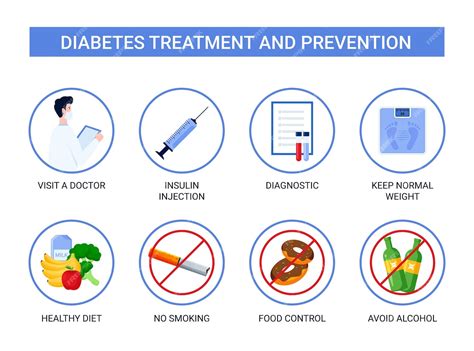Intro
Discover the implications of pregnancy with Rh negative blood type, including Rh incompatibility, sensitization, and potential risks to the fetus, and learn about necessary precautions and treatments.
Pregnancy is a complex and delicate process, and there are several factors that can affect the health and well-being of both the mother and the baby. One of these factors is the blood type of the mother, particularly if she has an Rh negative blood type. Rh negative blood type can pose some risks during pregnancy, and it's essential for expectant mothers to understand these risks and take necessary precautions to ensure a healthy pregnancy.
For women with Rh negative blood type, pregnancy can be a bit more complicated due to the potential for Rh incompatibility. This occurs when the baby inherits the Rh positive blood type from the father, which can cause the mother's immune system to react and produce antibodies against the baby's red blood cells. This reaction can lead to the destruction of the baby's red blood cells, a condition known as hemolytic disease of the newborn (HDN). In severe cases, HDN can cause anemia, jaundice, and even death in the newborn.
Understanding the risks associated with Rh negative blood type during pregnancy is crucial for expectant mothers. It's essential to know how to manage these risks and take necessary precautions to ensure a healthy pregnancy and a healthy baby. In this article, we'll delve into the details of pregnancy with Rh negative blood type, including the risks, symptoms, diagnosis, treatment, and prevention.
Rh Negative Blood Type and Pregnancy

Rh negative blood type is relatively rare, affecting about 15% of the population. However, it's more common in certain ethnic groups, such as European Caucasians. When a woman with Rh negative blood type becomes pregnant, there's a risk that her baby may inherit the Rh positive blood type from the father. This can cause the mother's immune system to react and produce antibodies against the baby's red blood cells.
Rh Incompatibility and Hemolytic Disease of the Newborn
Rh incompatibility occurs when the mother's immune system produces antibodies against the baby's Rh positive red blood cells. These antibodies can cross the placenta and attack the baby's red blood cells, leading to their destruction. This can cause a range of symptoms, including anemia, jaundice, and even death in severe cases.Causes and Risk Factors

Several factors can increase the risk of Rh incompatibility during pregnancy. These include:
- Having a previous pregnancy with an Rh positive baby
- Having a history of miscarriage or abortion
- Having a blood transfusion with Rh positive blood
- Having a medical procedure that involves the introduction of Rh positive blood into the mother's circulation
Symptoms and Diagnosis
The symptoms of Rh incompatibility can vary depending on the severity of the condition. In mild cases, there may be no symptoms at all. However, in more severe cases, symptoms can include:- Anemia
- Jaundice
- Enlargement of the spleen and liver
- Edema (swelling)
Diagnosis of Rh incompatibility typically involves a series of blood tests to detect the presence of antibodies against Rh positive red blood cells. These tests can be performed during pregnancy, and they can help identify women who are at risk of developing Rh incompatibility.
Treatment and Prevention

Treatment for Rh incompatibility typically involves the administration of Rh immunoglobulin (RhIg) to the mother. RhIg is a medication that helps prevent the production of antibodies against Rh positive red blood cells. It's usually administered during pregnancy, and it can help reduce the risk of Rh incompatibility.
Prevention is also key in managing Rh incompatibility. This can involve:
- Avoiding blood transfusions with Rh positive blood
- Avoiding medical procedures that involve the introduction of Rh positive blood into the mother's circulation
- Receiving RhIg during pregnancy
Managing Rh Incompatibility During Pregnancy
Managing Rh incompatibility during pregnancy requires close monitoring and regular check-ups with a healthcare provider. This can involve:- Regular blood tests to detect the presence of antibodies against Rh positive red blood cells
- Ultrasound scans to monitor the baby's health and development
- Amniocentesis to detect the presence of Rh positive red blood cells in the amniotic fluid
Complications and Risks

Rh incompatibility can pose several risks and complications during pregnancy. These can include:
- Anemia
- Jaundice
- Enlargement of the spleen and liver
- Edema (swelling)
- Premature birth
- Low birth weight
In severe cases, Rh incompatibility can cause death in the newborn. However, with proper management and treatment, the risks can be minimized, and the chances of a healthy pregnancy and a healthy baby can be increased.
Long-Term Effects
The long-term effects of Rh incompatibility can vary depending on the severity of the condition. In mild cases, there may be no long-term effects at all. However, in more severe cases, the long-term effects can include:- Anemia
- Jaundice
- Enlargement of the spleen and liver
- Edema (swelling)
- Neurological damage
- Developmental delays
Living with Rh Negative Blood Type

Living with Rh negative blood type requires careful management and planning, particularly during pregnancy. This can involve:
- Regular check-ups with a healthcare provider
- Regular blood tests to detect the presence of antibodies against Rh positive red blood cells
- Avoiding blood transfusions with Rh positive blood
- Avoiding medical procedures that involve the introduction of Rh positive blood into the mother's circulation
- Receiving RhIg during pregnancy
By understanding the risks and taking necessary precautions, women with Rh negative blood type can minimize the risks and have a healthy pregnancy and a healthy baby.
Coping with Rh Incompatibility
Coping with Rh incompatibility can be challenging, particularly for women who are experiencing a high-risk pregnancy. However, there are several ways to cope with the condition, including:- Seeking support from family and friends
- Joining a support group for women with Rh negative blood type
- Practicing stress-reducing techniques, such as meditation and yoga
- Focusing on a healthy lifestyle, including a balanced diet and regular exercise
Conclusion and Final Thoughts

Pregnancy with Rh negative blood type can be complex and challenging, but with proper management and treatment, the risks can be minimized, and the chances of a healthy pregnancy and a healthy baby can be increased. By understanding the risks and taking necessary precautions, women with Rh negative blood type can have a positive and empowering experience during pregnancy.
We hope this article has provided you with a comprehensive understanding of pregnancy with Rh negative blood type. If you have any questions or concerns, please don't hesitate to comment below. We'd love to hear from you and help you in any way we can.
What is Rh negative blood type?
+Rh negative blood type is a rare blood type that affects about 15% of the population. It's more common in certain ethnic groups, such as European Caucasians.
What is Rh incompatibility?
+Rh incompatibility occurs when the mother's immune system produces antibodies against the baby's Rh positive red blood cells. This can cause a range of symptoms, including anemia, jaundice, and even death in severe cases.
How is Rh incompatibility treated?
+Treatment for Rh incompatibility typically involves the administration of Rh immunoglobulin (RhIg) to the mother. RhIg is a medication that helps prevent the production of antibodies against Rh positive red blood cells.
Can Rh incompatibility be prevented?
+Prevention is also key in managing Rh incompatibility. This can involve avoiding blood transfusions with Rh positive blood, avoiding medical procedures that involve the introduction of Rh positive blood into the mother's circulation, and receiving RhIg during pregnancy.
What are the long-term effects of Rh incompatibility?
+The long-term effects of Rh incompatibility can vary depending on the severity of the condition. In mild cases, there may be no long-term effects at all. However, in more severe cases, the long-term effects can include anemia, jaundice, enlargement of the spleen and liver, edema (swelling), neurological damage, and developmental delays.
